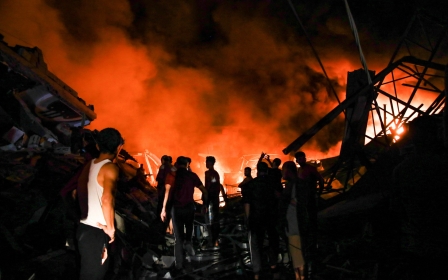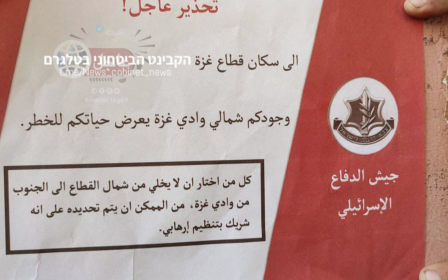Israel-Palestine war: US ready for escalation on three fronts, says Blinken

The United States is preparing to wage war on three fronts in the expectation that Israel’s attack on Gaza will escalate into a regional conflict, US Secretary of State Antony Blinken has said.
In an interview with NBC on Sunday, Blinken said US military forces in the Middle East were ready for a possible conflict between Israel and Hezbollah in southern Lebanon and northern Israel, and for attacks on US forces in the Middle East by Iran-backed groups.
“We don’t want to see a second or third front develop. We don’t want to see our forces or our personnel come under fire. But if that happens, we’re ready for it,” said Blinken.
Blinken was speaking after US Defence Secretary Lloyd Austin said on Saturday that additional US troops were preparing to deploy to the region.
Austin also announced the deployment of more missile defence systems after US forces in Iraq last week said they had destroyed two drones and damaged another.
The US currently has 2,500 troops based in Iraq, and 900 in northeastern Syria as part of the international coalition against the Islamic State (IS) group. The largest US military base in the region is the Al Udeid Air Base in Qatar.
He said a US aircraft carrier group which had previously been sent to the eastern Mediterranean would instead be "redirected to the Central Command area of responsibility".
Media reports in the US suggested the USS Dwight D. Eisenhower, which departed from Norfolk, Virginia on 14 October, is now heading for the Gulf.
The US Navy's USS Gerald R. Ford, the largest aircraft carrier in the world, arrived in the eastern Mediterranean two weeks ago.
Asked about the deployment of more US forces and if he was concerned that Iran was trying to escalate the war in Gaza, Blinken said: “We are concerned. In fact, we expect that there’s a likelihood of escalation - escalation by Iranian proxies directed against our forces, directed against our personnel.
“We are taking steps to make sure that we can effectively defend our people and respond decisively if we need to.”
Follow our live blog for all the latest on the Israel-Palestine war
Speaking about the release of two US citizens held hostage by Hamas in Gaza since its 7 October attacks on southern Israel, Blinken said that efforts to secure the release of more hostages were ongoing.
He thanked the government of Qatar for its “important role” in securing the release of Judith and Natalie Raanan, and said: “We’re hopeful that more follow… This is something we’re engaged in virtually around the clock.”
The New York Times reported on Sunday that US President Joe Biden had called Israeli Prime Minister Benjamin Netanyahu on Sunday afternoon to ask him to delay a ground assault, to allow more time to negotiate further hostage releases and for more humanitarian aid to reach Gaza.
The White House said in a statement: “The leaders affirmed that there will now be continued flow of this critical assistance into Gaza. The president expressed appreciation for Israel’s support in helping to accommodate the release of two American hostages.
“The leaders discussed ongoing efforts to secure the release of all the remaining hostages taken by Hamas - including US citizens - and to provide for safe passage for US citizens and other civilians in Gaza who wish to depart.”
Asked whether the US had asked Israel to delay a ground operation in Gaza until more hostages can be freed, Blinken said: “We’re not in the business of second-guessing what they’re doing. We are talking to them on a regular basis about how they do it.
“But these are decisions that Israel has to make. We can give our best advice, our best judgment, again, about how they do it and also how best to achieve the results that they’re seeking.”
Middle East Eye propose une couverture et une analyse indépendantes et incomparables du Moyen-Orient, de l’Afrique du Nord et d’autres régions du monde. Pour en savoir plus sur la reprise de ce contenu et les frais qui s’appliquent, veuillez remplir ce formulaire [en anglais]. Pour en savoir plus sur MEE, cliquez ici [en anglais].




